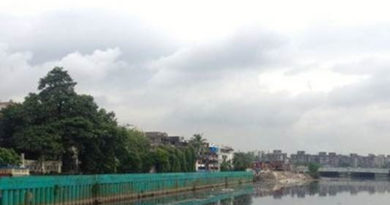About USD 90 million of PE capital has flowed into the Indian student housing sector since 2017
By, Anuj Puri, Chairman – ANAROCK Property Consultants
A slew of recent Government measures will draw lakhs of students to Indian college campuses for higher studies, and the demand for student housing has never been higher.
In the recent Budget, the Finance Minister allocated INR 99,300 crore towards the education sector and INR 3,000 crore for skill development. To boost the ‘Study in India’ initiative declared in the previous Budget, an Ind-SAT program is proposed to be held in Asian and African countries to attract overseas students to Indian universities.
The Government hopes to attract 200,000 international students to India – more than four times the current number. Currently, the total number of foreign students enrolled in India is 47,427 from 164 different countries. This number has risen by 36% since 2012-13 when the number of international students in India was a little over 34,770.
The last three years have seen a fairly decent growth of 6.55% in the number of beds in hostels across the top ten states; however, it has not kept pace with the increase in student enrolments. To illustrate – in 2017-18, the total enrolments were estimated at 36.6 million, while the hostel intake was 6.5 million. In 2018-19, the number of enrolments rose to over 37 million, while hostel intake still stood at 6.5 million.
Need for Purpose-Built Student Accommodation (PBSA)
Hostels and residential facilities in Indian educational institutes can meet only a fraction of the student housing demand. Purpose-Built Student Accommodation (PBSA) remains a largely untapped real estate category. What are they? Homes away from home, with spacious rooms, top-end security systems, fresh meals, laundry and housekeeping services, gym, and entertainment zones. A serious upgrade from college hostels and paying guest accommodations.
The student housing ethos aligns perfectly with contemporary students and is now a buzzing watchword in educational hubs around the country. Three major education centres – Pune, Bengaluru and Delhi-NCR – lead the pack.
Pune
A major IT hub and emerging Smart City, Pune’s educational offerings have earned it the moniker of ‘Oxford of the East’. Home to almost 3 lakh students, it is one of India’s largest education centres which attracts students from across India and beyond. Not surprisingly, Pune has witnessed a spurt in PBSA development with national players like Stanza Living, Oxfordcaps and Your Space establishing presence and planning aggressive expansion.
Anticipating the growing demand in this segment, Kohinoor Group has invested INR 100 crore in the student housing franchise Youthville. The company started with a 150-bed facility in Pune and aims to have 40,000 beds by 2021. Another local player, The Tribe, has set up a 194-bed facility in Viman Nagar offering purpose-built facilities at 6-month and 12-month packages to match university schedules.
Major players: Stanza Living, Your Space, Oxfordcaps The Tribe, Youthville
Areas of presence: Viman Nagar, Bavdhan, Karve Nagar, Kothrud, Dhankawadi
Average rate per bed: Rs 8,000/month
Bengaluru
Apart from the IT/Tes industry, education also turbocharges Bengaluru’s real estate market. According to the HRD Ministry’s All India Survey on Higher Education 2018-19, the Bengaluru Urban District tops in the number of colleges with 880. Every year, the city attracts thousands of local, outstation and expatriate students. In fact, with over 10,000 overseas students, Karnataka has had the highest number of students coming from foreign countries.
Private institutions like M S Ramaiah have now established dedicated student living spaces to cater to the burgeoning demand for student housing here. Manipal Education and Medical Group had earlier launched a chain of branded youth hostels offering 10,000 beds through the independent brand Yoho. Sensing potential in the city’s student housing sector, Wall Street giant Goldman Sachs has acquired a 75% stake in Yoho for INR 350 crore, helping the company to expand its footprint and add another 20,000 rooms. National players like Stanza Living are also betting big on Bengaluru and have plans to provide 5,000 beds to cater to the city’s growing population.
Major players: Stanza Living, Oxfordcaps, Campus Students Communities, MSR Living, Yoho, Youthville
Areas of presence: Hebbal, Koramangala, Electronic City, Sudhama Nagar, Basvaanagudi, J P Nagar, Bannerghatta Road, Yelahanka, BEL Road, JC Road
Average rate per bed: From INR 10,000 – Rs 35,000/month
Delhi-NCR
Home to the country’s top colleges at Delhi University and dozens of private educational institutes, Delhi has traditionally attracted students from far and wide. In Kamla Nagar, Vijay Nagar and Hudson Lane in the north campus and Satya Niketan, Anand Niketan in the south campus, scores of PBSAs have come up across the city. The neighbouring pockets of Noida and Gurgaon have also seen a spurt in private colleges, creating demand for student housing. Sectors 121, 63 and 73 in Noida and Sohna Road in Gurgaon are preferred locations for student housing.
Leading operators Stanza Living and Your Space have been leasing properties from owners and customising them to match student needs. Noida-based Placio offers fully-furnished accommodation in a community-living model, while CoHo dorms has partnered with leading institutions such as Faculty of Management Studies, Indian Institute of Technology and Pearl Academy to provide affordable student accommodation. Singapore-headquartered Oxfordcaps is prominently present in NCR and now plans to develop dormitory spaces to cater to a wider audience.
Major Players: Stanza Living, Placio, CoHo, Your Space, Oxfordcaps, Nest Away
Areas of presence: Vijay Nagar, Kamla Nagar, Satya Niketan, Hauz Khas, Noida Sector 121, 63 and 73, Sohna Road
Average rate per bed: Rs 8,000 -20,000/month
New Emerging Centres
Apart from these leading cities, new student housing opportunities are emerging in tier 2 and 3 cities such as Kota, Pilani, Indore, Nagpur and Mesra, which have premiere educational institutes. These smaller cities provide more lucrative opportunities to student housing investors due to low land costs and scope for expansion and experiment.
Built-to-suit properties are the future of the student housing segment as they offer the higher yields and returns. With proper optimisation of spaces, such properties can become the norm for future student living projects.
According to ANAROCK data, about USD 90 million of capital has been infused into the Indian student housing sector since 2017, indicating high investor interest in the segment. The New Education Policy is expected to be announced soon, and the Government plans to introduce External Commercial Borrowings and FDI in the sector to open fresh avenues of funding in the future.




